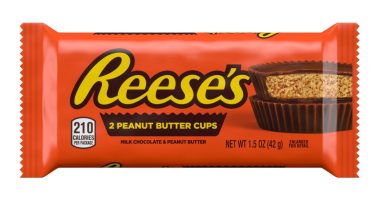Understanding Why Creatine Bloating Happens and How to Deal with It – Creatine is a popular supplement among athletes and fitness enthusiasts due to its proven benefits for muscle growth, strength, and performance. However, one downside some people experience is bloating, especially during the initial supplementation phase. Let’s delve into the world of creatine bloating:
What is Creatine bloating? Creatine bloating refers to a feeling of fullness or puffiness, typically around the stomach and muscles, that can occur when taking creatine supplements. This is mainly due to water retention within your muscle cells.
Why does it happen?
There are two main contributing factors:
Loading phase: Traditionally, creatine supplementation includes a loading phase where you take higher doses (20-25 grams) for 5-7 days. This rapid influx of creatine draws water into your muscles, leading to temporary bloating.
Increased muscle hydration: Even without a loading phase, creatine naturally pulls water into muscle cells to support their function and growth. This can cause a subtle fullness sensation for some individuals.
Is it a cause for concern? No, the bloating associated with creatine is generally harmless and temporary. It’s not the same as true digestive bloating caused by gas or inflammation. Additionally, the water weight gain is not related to fat gain.
Causes
The causes of creatine bloating are primarily linked to water retention resulting from creatine supplementation. Creatine, particularly during the loading phase, can lead to water retention within the muscle cells, causing a temporary increase in water weight and bloating.
This water retention is mainly intra-cellular, meaning it occurs within the muscle cells and not subcutaneously, which can actually make the muscles appear harder and more defined.
The feeling of bloating caused by creatine is often described as an uncomfortable fullness in the abdomen, and some individuals may experience excess gas.
Additionally, the type of creatine and its solubility can also impact bloating, with creatine monohydrate being a well-tolerated option for many individuals.
Understanding the duration: how long does creatine bloating last?
The duration of creatine bloating is typically temporary and may subside after a few weeks. During the loading phase, which involves taking a higher dose of creatine for 5-7 days, bloating may occur, but it is usually temporary and should resolve within a few weeks.
Skipping the loading phase and starting with a maintenance dose of 3-5 grams of creatine daily may help limit or avoid bloating.
Additionally, choosing the right form of creatine, such as creatine monohydrate, and staying hydrated can help reduce bloating effects.
It’s important to note that the water retention associated with creatine usage will gradually subside once you stop taking the supplement. Overall, the duration of creatine bloating is typically short-term and should not be a cause for long-term concern.
How to minimize or avoid creatine bloating
- Skip the loading phase: Research suggests the loading phase might not be necessary for optimal results. Start with the maintenance dose of 3-5 grams daily instead.
- Stay hydrated: Drink plenty of water throughout the day to facilitate smooth creatine absorption and reduce water retention.
- Monitor sodium intake: Excess sodium can worsen water retention. Limit processed foods and focus on fresh fruits and vegetables.
- Choose creatine monohydrate: This is the most researched and well-tolerated form of creatine.
- Mix it properly: Ensure your creatine dissolves completely in your drink to avoid stomach discomfort. Warm water aids in better dissolution.
- Consider taking it with meals: Some individuals find this reduces bloating compared to taking it on an empty stomach.
- Discontinue if Necessary: If bloating persists, reducing the creatine dose or discontinuing its use may be necessary.
- These strategies can help minimize the potential bloating effects associated with creatine supplementation.
When to Seek Medical Advice
If you experience persistent or severe bloating after starting creatine supplementation, it’s important to consult with a healthcare professional. While creatine bloating is often temporary and benign, persistent bloating could be a sign of other underlying health issues, such as digestive problems, food intolerances, or medical conditions. Seeking medical advice can help rule out other potential causes of bloating and ensure your well-being.
Conclusion
Creatine bloating is primarily due to temporary water retention, often occurring during the loading phase of creatine supplementation. It is typically a short-term and benign effect that may subside after a few weeks. Strategies to manage creatine bloating include staying hydrated, choosing the right form of creatine, and avoiding the loading phase. If bloating persists or is severe, seeking medical advice is recommended to rule out other potential causes and ensure overall health.
Journal reference: NCBI
ALSO READ: Eating for Energy and Easy Digestion: 7-Day No Sugar Meal Plan to Try Out









